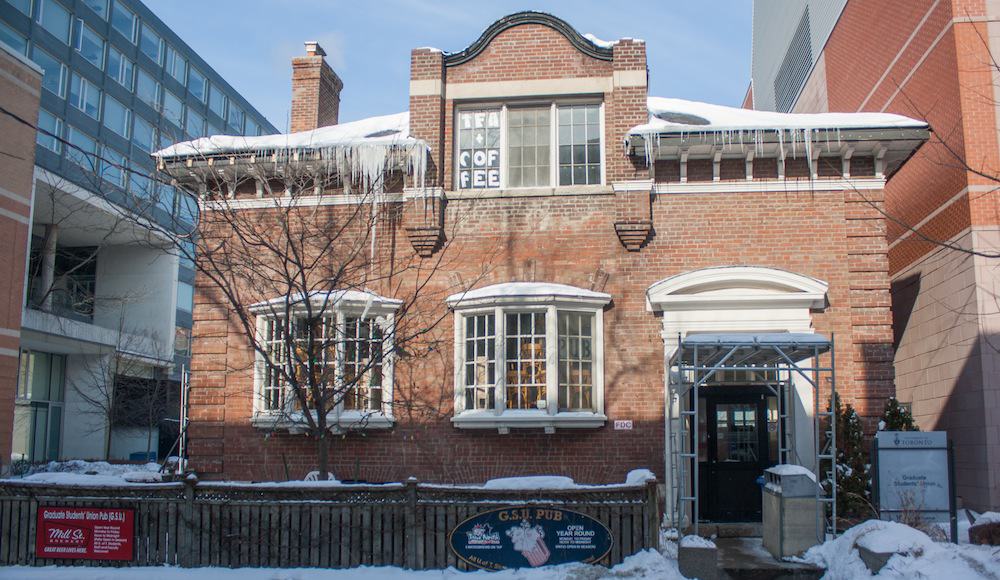The University of Toronto Graduate Students’ Union (GSU) has voted to extend the Litigation Committee for another year so that it may investigate the results of the recent referendum on the GSU’s continued membership in the Canadian Federation of Students (CFS) and the Canadian Federation of Students-Ontario (CFS-O).
“The investigation will involve talking to University of Toronto administration to determine how the number of GSU members is determined, as well as a lawyer to help us determine what options are available to the Union going forward,” says Josh Newman, a member of the Litigation Committee.
The motion to extend the Litigation Committee was passed at the GSU’s Annual General Meeting (AGM) on December 1.
This move comes following a statement from the chief returning officer (CRO), Stephen Littley, that the vote failed to reach quorum and is therefore invalid.
Quorum quandary
A statement on the CRO’s website says that the quorum requirement was 10 per cent of eligible voters. According to Gwyndaf Garbutt, a scrutineer, the University of Toronto provided Littley with the numbers of the graduate student body on November 14.
Based on these figures, the statement says, the number of eligible voters was 16,056, which put quorum at 1,606 votes. Littley’s statement claims that a total of 1,599 votes were cast, meaning that the referendum fell 7 votes short of quorum.
Due to the perceived difficulty in determining the number of registered students in the School of Graduate Studies, whether or not the referendum met the 10 per cent of the graduate population needed for quorum remains the subject of heated debate.
“The graduate population of the University of Toronto fluctuates much more than most people would expect, due to fee payment times, late registration, and withdrawal,” says Garbutt.
Members of the GSU raised questions about who is included in the numbers U of T provided to the CFS. Students present at the meeting mentioned November graduation, students that are registered in online or distance education courses, or students that are completing coursework abroad as factors that could influence who counts as a member of the GSU.
Ashleigh Ingle, a graduate student involved in the dispute, spoke to the necessity of investigating the referendum result. “Having a democratic vote on our membership in the CFS has been a struggle every step of the way, and unfortunately — but unsurprisingly — the CFS refuses to accept the result of the vote,” Ingle says. “But we’ve come this far and the right thing to do is to uphold the collective decision of U of T grad students and remove ourselves from this money grab masquerading as a student movement.”
Christina Mitas, the Ontario Institute for Studies in Education (OISE) representative on the GSU General Council, believes that the quorate number was agreed upon in advance of the referendum. “It does not matter how slim the margin was, we did not meet quorum,” Mitas says. “I appreciate that 66 [per cent] of those that did vote expressed a desire to leave the CFS, but I also see that over 90 [per cent] of our membership stayed silent on this matter. We simply did not get the amount of student engagement that we needed.”
“At this point it appears to be a simple issue of quorum,” says Caitlin Campisi, a PhD student at OISE and the president of the OISE Graduate Students’ Association.
Campisi also says she wishes to see the matter resolved quickly so that the GSU can return to focusing on advocating for graduate students.
Verifying the votes
At the AGM, Garbutt said that there were a total of 1,599 votes cast: 519 in favour of continuing the GSU’s membership in the CFS and 1,054 votes against. Garbutt counted 15 spoiled ballots as well as 13 verified double enveloped ballots. The CRO’s statement reports that 1,599 votes were cast, but does not give the number of double enveloped ballots.
The administration has verified these double enveloped ballots as eligible votes, but it is not known how many of these are yes or no votes.
A post on the Enforce the No vote to CFS at UofT Facebook page claims that almost 1,600 students voted in the referendum and that around 66 per cent of these students voted “No.”
The CFS has not yet released a formal result. “The final vote count will be released once the double enveloped ballots have been counted,” says the statement on the CRO’s website.
“I do not know when the CRO will release the official vote count,” Garbutt says. From Garbutt’s understanding, the CRO and scrutinizers must meet briefly again to count the double enveloped ballots. “I have not yet been contacted in order to do this,” Garbutt says.


